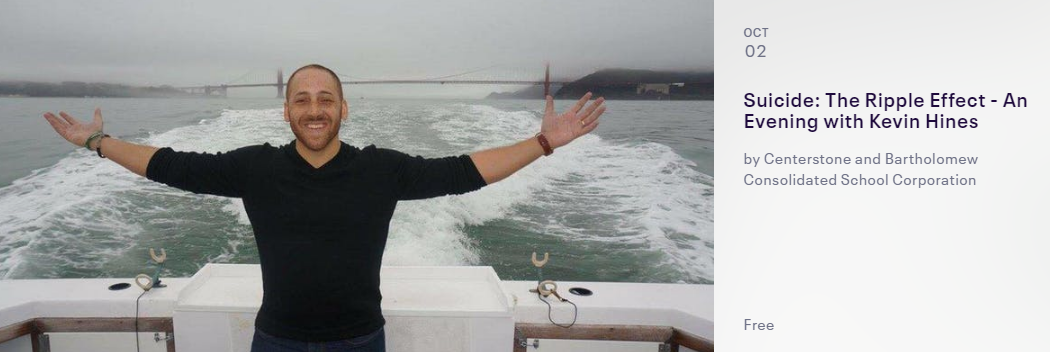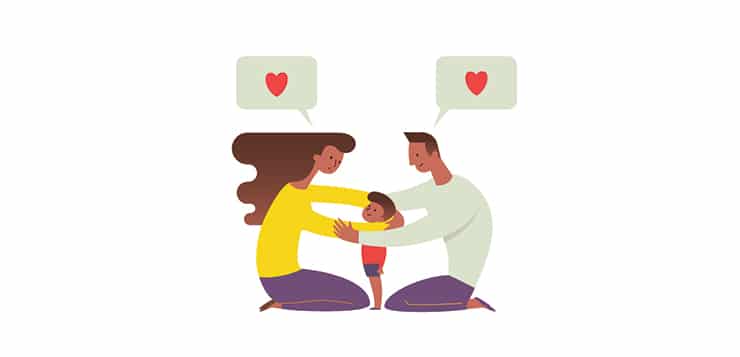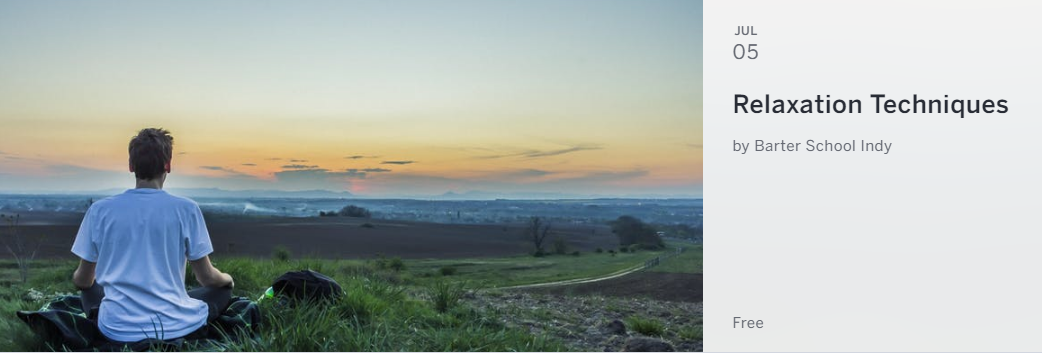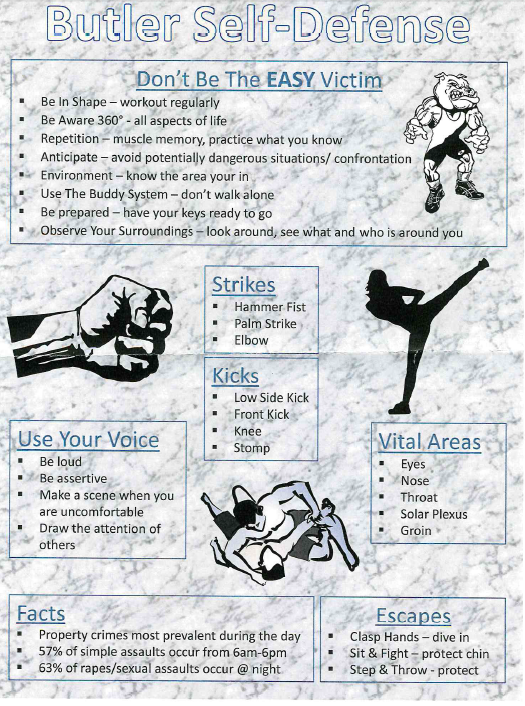DESCRIPTION
Kevin Hines, mental health advocate, award-winning global speaker and documentary filmmaker will share his story of survival and tremendous will to live. Kevin is one of a very few people to survive a jump from the Golden Gate Bridge. At the age of 19, two years after being diagnosed with bipolar disorder, his anguish was so intense that he thought jumping from the bridge was his only option. He instantly regretted his action. Kevin’s story is a remarkable testament to the strength of the human spirit and a reminder for us to love the life we have.
Kevin, an inspiring and motivation speaker, has dedicated his life to saving lives by spreading the message of hope, recovery and mental wellness. Through his work he promotes the tremendous ripple effects of advocacy, inspiration, and hope that are helping millions heal and stay alive.
Centerstone and Bartholomew Consolidated School Corporation have partnered to enable Kevin to share his story of survival and advocacy with students, parents, community leaders, emergency service personnel and area residents.
Kevin’s documentary Suicide: The Ripple Effect will be screened on Tuesday, October 9th at Yes Cinema. Due to limited seating we recommend registering on the documentary film Eventbrite page. https://www.eventbrite.com/e/suicide-the-ripple-effect-documentary-film-tickets-49230497744
We would like to recognize the following community organizations for helping spread Kevin’s message of Hope and Healing.
Martha L. Middleton Mental Health Fund within Heritage Fund – The Community Foundation of Bartholomew County
Columbus Regional Health ● Healthy Communities
Duke Energy ● WCSI ● Old National Bank ● IUPUC
Taylor Bros. Construction Co., Inc.
The Kroot Corporation ● Driftwood Builders ● Bartholomew County REMC ● Frank Anderson Tire ● Ivy Tech Foundation
We appreciate the support of our national sponsors Data Blue, Valic and Afia
FAQs
Do I have to bring my printed ticket to the event?
No tickets will be mailed. Please print your ticket or display it on your phone for admission.
Photography
No flash photography or recording allowed
Doors
Doors open approximately 30 minutes prior to the event
How can I contact the organizer with any questions?
E-mail lyn.morgan@centerstone.org or call 812-343-4887






 Cheating on your diet or exercise plan? Struggling with self-control or impulse choices? Science shows that willpower can get depleted! Learn how you can strengthen it and increase your ability to resist temptation.
Cheating on your diet or exercise plan? Struggling with self-control or impulse choices? Science shows that willpower can get depleted! Learn how you can strengthen it and increase your ability to resist temptation.

